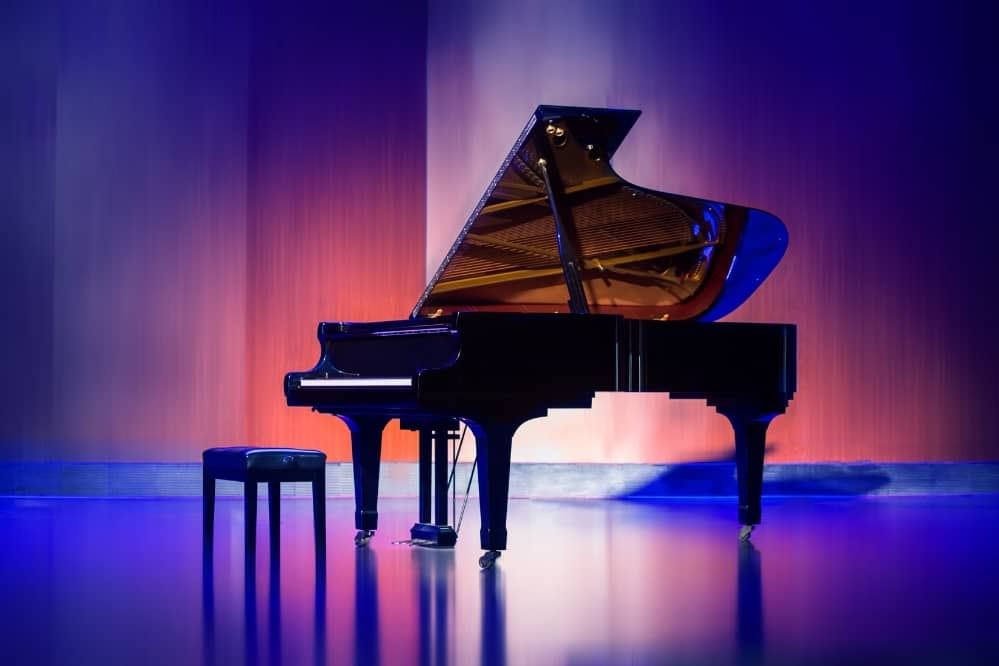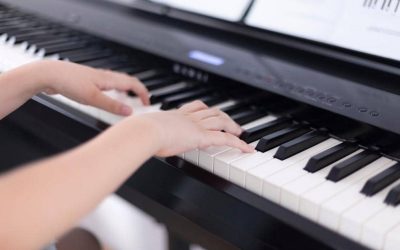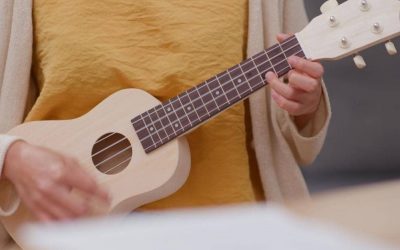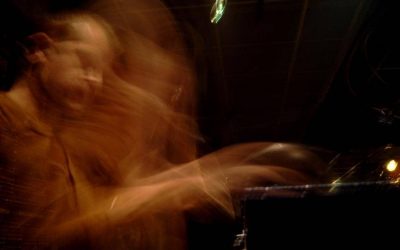Pianos are some of the most beloved instruments out there. They are also among the most expensive, so you’ll want to make sure to take every precaution to ensure yours remains in excellent condition for years to come. There are naturally many aspects of piano care, but one of the most commonly overlooked is the humidification and dehumidification process.
So how does humidity affect a piano, what humidity level is right for yours, what can you do to control the humidity levels – and are humidifiers really necessary?
How Does Humidity Affect a Piano?
Pianos, like many instruments, don’t do very well when exposed to radical environmental changes. Of course, rooms and homes gradually change temperature and humidity over the seasons, and that’s largely okay. It’s extreme temperatures and temperature shifts that you really want to avoid. That’s why you’ll want to make sure to limit the relative humidity (RH) of the space in which pianos are kept.
For example, wood absorbs moisture. Higher RH can result in wooden components of your piano as well as the chassis absorbing moisture and swelling up, which in turn can cause components to start to become unseated from one another.
This can also cause the felt to start to peel.
Over time, the tiny pivots and keyboard surfaces can also start to detach from one another.
Remember that your piano’s strings are metal, so too much moisture can eventually cause them to rust and snap.
Tuning pins, which are used to hold the strings in place, can start to ease and thus allow the piano to fall out of tune. This can be exacerbated even further by a damp sound board, which can cause the copper-wound bass strings to start to sound dull and cause the overall quality of the sound to deteriorate.
On the other hand, it isn’t just high humidity that can cause a piano to start to go haywire. Low humidity and excessive dryness can be just as bad. This is a common problem in homes and studios that are centrally heated.
In spaces with low humidity and excessive dryness, the wooden components can start to become brittle, which can harm your ability to string the tuning pins effectively. The wooden parts can start to crack, and the separation of different components can start to occur.
Finally, as alluded to above, too much or too little humidity can drastically affect the pitch and tone of your piano. The crown of your soundboard presses its bridge against the piano’s strings, ensuring a consistent tone. The soundboard, bridge, and strings need to all be in perfect alignment with one another for this to happen, which is why the loosening of strings, pins, and other components as mentioned above can wreck your piano’s overall sound quality. If cracks start to appear, the piano may eventually become so damaged as to be rendered unplayable.
What Is the Proper Humidity Level for a Piano?
Given the fact that pianos can suffer at higher or lower humidity levels, you’ve probably figured out by now that these instruments are classic examples of the Goldilocks Principle in action – namely, a nice, happy medium is best.
You don’t want your piano to be too moist or too dry, which is why a relative humidity level of between 40% to 50% is best. A figure closer to the latter may be better in summer months, while cooler climates and temperatures may do better with a figure closer to 40%.
Forty-two percent is sometimes cited as the ideal humidity level, as this can help minimize maintenance costs while giving you the best chance to keep your piano at a good relative humidity level year round.
That said, the key to piano humidity is consistency. The fewer and less drastic the changes, the better. For that reason, while it’s important to keep a piano in this general range of relative humidity, you probably don’t want to constantly play around with the humidity level in pursuit of some “perfect” figure. Doing so may be more costly on your part and may just stress out your piano with the constant temperature and humidity changes.
This is also why it is best to keep pianos in rooms that are climate controlled. For as romantic as it may seem to ring in spring Vivaldi-style, play Chopin in summer sunshine, Coltrane in autumn rain, or bang out a Bach Christmas oratorio near the snow, such exposure to the elements will harm your piano.
This begs a natural follow-up question, namely, how to check the relative humidity near your piano.
The simplest way of doing this is to avoid the issue entirely by keeping your piano in a climate controlled room where you know what the humidity is year round.
If that is not an option, you can use a hygrometer, which measures air resistance and can thus determine relative humidity. These devices have metal plates through air passes. If the air contains more moisture than the plates, how much of a static charge the plates can or will hold will start to decrease. This in turn allows the device to calculate humidity.
Types of Humidifiers
Among the most common types of piano humidifiers are:
Cool mist piano humidifiers, which true to their name spray a fine mist into the air. These models tend to be very basic and small, without a display or built-in hygrometer. While these may be good starting options, they are of limited use in very dry or hot climates.
Warm mist piano humidifiers, which spray a warmer mist into the air. While these may be more helpful for some, they can also take a significant amount of electricity.
Dedicated piano humidifiers, which are built into the piano itself. These are obviously the most advanced and costly options. At the same time, they can often produce the best results, and stand the best chance at keeping your piano at that “perfect” 42% humidity level without drastically changing the temperature or moisture levels. These can often cost hundreds of dollars and so are perhaps best left to experienced piano players and those with dreams of collegiate or professional excellence.
Do I Need a Piano Humidity Control System?
As mentioned, your piano doesn’t technically need a humidifier. Pianists and composers from Mozart to Thelonious Monk got along just fine without them. However, if you want to make sure your piano is in optimal condition and is protected as much as possible from the ravages of humidity, a humidifier may be a good idea. A humidifier also helps ensure the long-term quality of your piano’s wood, longer tuning stability, and theoretically allows you to place the piano in different locations from a climate controlled room. As demonstrated above, humidifiers cost different amounts, and become more “necessary” the more your professional aspirations and thus the necessity for a pitch perfect piano grows.
A piano is a long-term investment, and you want to do everything you can to protect it. The best piano humidifiers can do just that, helping to keep your piano at the perfect humidity year round and thus in the best playing condition possible.




